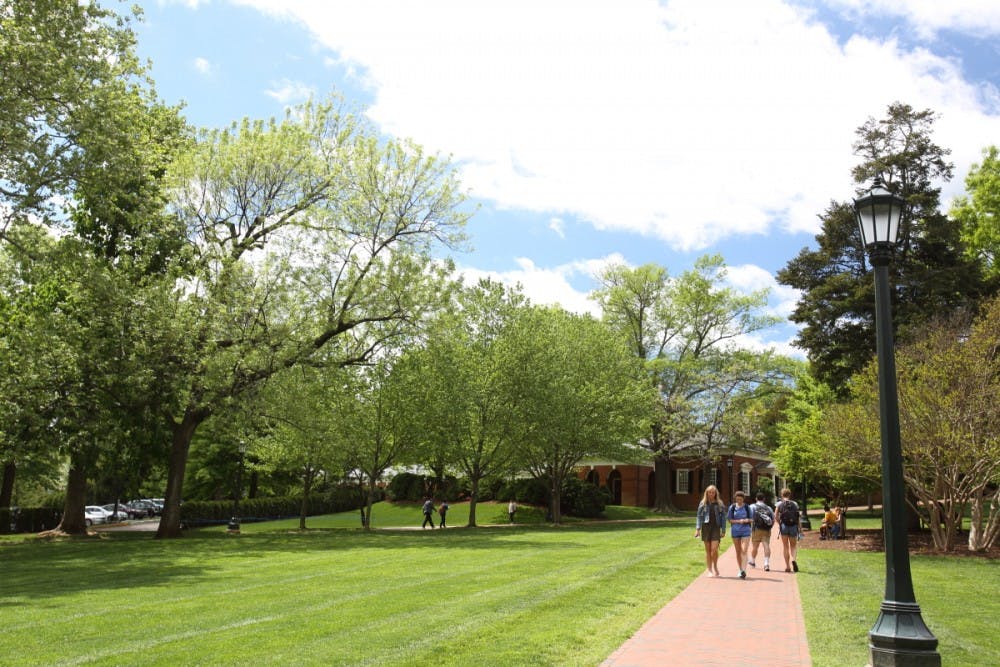This semester marks the piloting of the New College Curriculum by a cohort of the Class of 2021. Approximately 600 first-year students are enrolled in the New College Curriculum, which includes courses on Engaging Differences. Assoc. History Prof. Tico Braun teaches one of these courses titled “The Individual and Society,” which examines historical and contemporary issues and how they relate to and are shaped by both individuals and society.
Engagement courses enrich the first-year student experience through discussion and written work dealing with “broad fields of human life,” Braun said in an interview.
“I think we want to do something that is more vital for first-year students than we used to provide,” Braun said. “We want to make undergraduate education at the University of Virginia a more dynamic sort of thing than it often has not always been.”
Braun said he hopes the concepts of the individual and society remain with his students after the course and how it relates to current issues.
“This question — individual and society — I would challenge you to read a single newspaper article that doesn’t touch on that subject,” Braun said in the interview. “I’m hoping that my students will be attuned to that and see it in many of the things that they read, and read more actively, and look for things and have more curiosity about what they can learn in an article than they had before.”
Braun knows the names of all 39 students in the class and greeted them as they strolled into class at 8 a.m. Monday morning. The class analyzed a Washington Post article titled “Colin Kaepernick vs. Tim Tebow: A tale of two Christians on their knees” and how issues of race and religion relate to the individual and society. Students had the opportunity to talk about the readings in small groups before engaging in a class-wide discussion.
“In the world of honor, authenticity — you are within yourself — is irrelevant. It’s how you show yourself in society and who you are is what other people think you are,” Braun said as he spoke to the class.
Braun also spoke about whether the issue of poverty relates to the individual or to the society.
“It has to be in some ways both. And then depending on what we’re studying, what we’re looking at, and who we are, the balances are going to shift,” Braun said. “Perhaps in no other other society in the world historically and now has that question made more sense than in the United States of America.”
The course covers cross-cultural examinations of other topics such as student politics in the 1960s, egalitarianism and the quest. Students use the discussions about these issues to write a final paper about their take on the debate between the individual and society.
First-year College student Caroline Strickland, who is a student in Braun’s class, said she values both the broad nature of the topics discussed and their application to current events.
“This class is based [on] anything. Anything in the world that involves the individual and society,” Strickland said. “Is the individual kind of weighing more like in affecting society or is the society weighing more, defining the individual?”
Strickland credits the untraditional nature of the course for driving student engagement and discussion.
“It’s not like your traditional history class,” Strickland said. “It’s easy to get engaged because it’s completely new to me.”
The new curriculum’s competencies include the Engagements, the Literacies and the Disciplines as an alternative to the traditional College’s Area Requirements, which have been in place for over four decades. The Engagements portion of the curriculum allows students to connect to their communities and the broader world around them.
There are four categories of Engagements — Aesthetic Engagement, Empirical and Scientific Engagement, Ethical Engagement and Engaging Difference. Each Engagement can be fulfilled either by taking either two, two-credit classes in a semester covering a single Engagement or by taking a full-semester four-credit class covering two Engagements.
The Engaging Difference requirement aims to expose students to the complexities and inequities caused by human difference as well as to “understand the need to engage with different lives and cultures in a spirit of a common good to make sense of human experience,” according to the College’s website.







